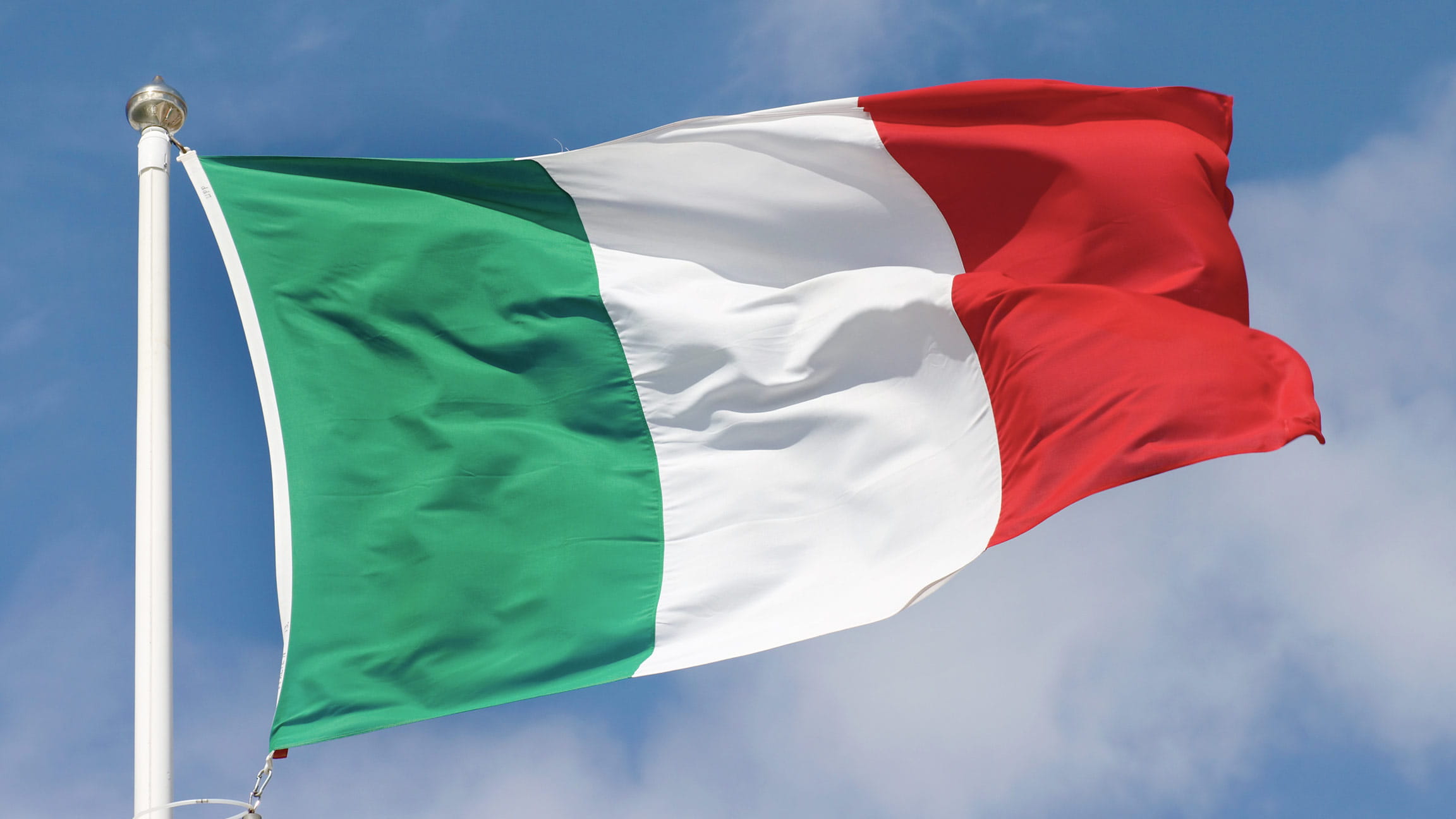Populist politics in Italy suggest a summer of uncertainty

Samenvatting
The recent political turmoil in Italy has thrown a renewed spotlight on the challenges facing the country. Despite signs of improvement in its economic situation, helped by a stronger global economy and firming domestic demand, several factors weigh heavily on the outlook for Italy – including wider euro-zone uncertainty and the drop-off in cyclical growth momentum globally. Navigating these issues will be top of the agenda for the country’s next government.
Key takeaways
|
The political upheaval in Italy has raised a number of fears, not least that Europe’s fourth-largest economy may want to withdraw from the EU, if not subvert the euro with a parallel currency too. We view both events as unlikely, but the mere prospect of them occurring – amid continuing political uncertainty – caused cascading market reactions: yields on Italian debt soared as prices plummeted; a selloff in Italian equity markets spilled over to the US; and the euro fell to its lowest level against the US dollar this year. At the climax of the recent crisis, markets were pricing in a high probability of default on Italian debt, with no possibility of outright monetary transactions (OMT) by the ECB. The subsequent re-steepening of the yield curve is a welcome sign of normalisation.
Two possibilities: elections in September or a new political government
The political environment in Italy is fast-changing. Since parliamentary elections in March, which resulted in a hung parliament with no party or coalition winning a majority of seats, Italy hasn’t had a government. On 27 May, President Sergio Mattarella rejected the nomination of an economics minister whom he considered anti-EU and anti-euro. This triggered the latest surge of market volatility globally and raised the spectre of his impeachment.
From our perspective, Italy’s political situation boils down to two possibilities – both of which are likely to create a degree of certainty that may buoy financial markets in the short term:
- The first is the formation of a caretaker government, led by interim Prime Minister Carlo Cottarelli, followed by a new round of elections that would effectively be a referendum on Italy’s role in the EU. We believe that September is a more likely date for these elections.
- The second possible scenario is the formation of a new political government, possibly with the Five Star Movement and the League party; or a centre-right government led by the League (albeit an unlikely outcome without a snap election).
If new elections are held, a populist outcome could be more hostile to the EU’s leadership. Then again, recent events could trigger an earnest dialogue with the EU, which would not want Italy to leave the union. Until then, we expect that the EU will be in a mostly wait-and-see mode, and that it will not interfere with Italy’s affairs.
Economic and market outlook: headwinds persist
Even before recent events in Italy, the global markets were facing a few headwinds:
- The first is that leading economic indicators may be “rolling over” as the global economy moves into a late-cycle stage of growth. We don’t anticipate this will result in a hard landing for the world’s major economies, let alone recession, but less cyclical momentum implies less momentum for risky assets.
- The second is a general sense of political uncertainty. This is an issue that we believe will persist on a global scale for some time, considering that the underlying reasons for populism’s rise are not going away: growing inequality, threats from automation and an anti-globalisation mood – as already exemplified by Brexit.
What’s surprising is that Italy’s voters have recently been voting for anti-establishment parties even though the country’s economy has been doing better. The euro is less popular in Italy than it was a few years ago, which has unnerved politicians throughout the EU. Yet we believe this mood would change before elections are held: given the market pressure that is severely hurting Italian assets, we suspect that Italian voters would think twice before voting against the euro.
Investment implications: a summer of uncertainty
We were already cautious on Italian government debt, and recent events have not changed our stance. We expect continued volatility over the summer, particularly given that the European Central Bank is set to begin withdrawing quantitative easing. The ensuing rise in interest rates would be a key issue for the affordability of Italian debt, and it could have global implications given that Italy is the third-largest borrower in the world.
Italian equities were generally doing well before recent events as the country’s economic cycle improved and earnings growth looked positive. But Europe seems to be a centre of uncertainty for global investors, as recent troubles in Spain have added to those in Italy. The selloff of euro-zone banks seen in recent days has been driven by systemic fears, the banks’ holdings of Italian sovereign debt and a lack of interest-rate rises as the ECB ends quantitative easing (QE) later this year. We believe these fears are exaggerated, yet we expect investors to stay cautious on European equities – particularly given the potential for a summer of negative news headlines.
Globally, monetary policy will continue normalising, but central banks will watch carefully for any signs of contagion in their economies. Italy’s crisis could also encourage the US Federal Reserve to raise rates more quickly. As liquidity provided by central banks is pulled back, it does not necessarily imply that markets will fall, but we believe it may become more difficult for markets to move much higher. Investors should brace for additional market volatility, particularly given the potential for cyclical economic data to weaken.
Investing involves risk. The value of an investment and the income from it will fluctuate and investors may not get back the principal invested. Past performance is not indicative of future performance. This is a marketing communication. It is for informational purposes only. This document does not constitute investment advice or a recommendation to buy, sell or hold any security and shall not be deemed an offer to sell or a solicitation of an offer to buy any security. The views and opinions expressed herein, which are subject to change without notice, are those of the issuer or its affiliated companies at the time of publication. Certain data used are derived from various sources believed to be reliable, but the accuracy or completeness of the date is not guaranteed an no liability is assumed for any direct or consequential losses arising from their use. The duplication, publication, extraction or transmission of the contents, irrespective of the form, is not permitted. This material has not been reviewed by any regulatory authorities. In mainland China, it is used only as supporting material to the offshore investment products offered by commercial banks under the Qualified Domestic Institutional Investors scheme pursuant to applicable rules and regulations. This document is being distributed by the following Allianz Global Investors companies: Allianz Global Investors U.S. LLC, an investment adviser registered with the U.S. Securities and Exchange Commission; Allianz Global Investors GmbH, an investment company in Germany, authorized by the German Bundesanstalt für Finanzdienstleistungsaufsicht (BaFin); Allianz Global Investors Asia Pacific Ltd., licensed by the Hong Kong Securities and Futures Commission; Allianz Global Investors Singapore Ltd., regulated by the Monetary Authority of Singapore [Company Registration No. 199907169Z; Allianz Global Investors Japan Co., Ltd., registered in Japan as a Financial Instruments Business Operator [Registered No. The Director of Kanto Local Finance Bureau (Financial Instruments Business Operator), No. 424, Member of Japan Investment Advisers Association and Investment Trust Association, Japan]; and Allianz Global Investors Taiwan Ltd., licensed by Financial Supervisory Commission in Taiwan.
How will this economic Goldilocks story end?

Samenvatting
Thanks to central banks’ coordinated efforts, the global economy has not only recovered from the financial crisis, but enjoyed a good run of solid growth and low inflation. Take a closer look at this “Goldilocks moment” for insights into the cast of characters at play – and the surprises that may be in store.
|
Key takeaways
|







